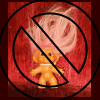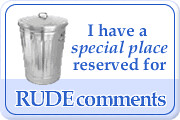Saturday, March 27, 2010
Case# 63 The Bad Boys of Cyberspace
Getting Known Through AnonymityMuch has been said lately about how anonymity on the internet "disinhibits" people. Feeling relatively safe with their real-world identity hidden, they say and do things they otherwise wouldn't normally say or do in "real life." In some cases, that seems to be a good thing. People may be more honest, open, generous, and helpful. In other cases, however, the nasty side of a person gets unleased.
I'd like to give a slightly different spin to this "disinhibition through anonymity" concept. My basic premise is this: NO ONE WANTS TO BE COMPLETELY ANONYMOUS. No one wants to be totally invisible, with no name or identity or presence or interpersonal impact at all. Everyone wants and needs to express some aspect of who they are, to have others acknowledge and react to some aspect of their identity. In some cases, it's a benign feature of who you are. In some cases, not.
Anonymity on the internet allows people to set aside some aspects of their identity in order to safely express others. Snerts need someone to react to and affirm their offensive behavior. This need is a bit different than simply catharting their frustrated drives, as the "eros-ridden" idea suggests. Snerts are trying to express some unresolved and warded-off feature of their troubled identity in an (often desperate) attempt to have it acknowledged. Unfortunately, they do it in a way that abuses other people. Under ideal conditions, they may be able to accept and work through those inner feelings and self-concepts that torture them. If not, they will continue to vent that ooze through their online snert identities, while safely dissociating it from their "real world" identity.
Does greater anonymity result in greater deviance? It's an interesting question. Because greater anonymity usually is associated with less accountability for one's actions, the answer would seem to be "yes." (snipped)
The higher prevalence of misbehavior among anonymous users may be more than just a "disinhibiting" effect. Rather than the anonymity simply "releasing" the nasty side of a person, the person may experience the anonymity - the lack of an identity - as toxic. Feeling frustrated about not being known or having a place in the group, the new user acts out that frustration in an antisocial manner. They need to feel that they have SOME kind of impact on others. It's not unlike the ignored child who starts acting "bad" in order to acquire attention from the parent, even if it's scolding and punishment. The squeakiest wheel. Humans, being humans, will almost always choose a connection to others over no connection at all, even if that connection is a negative one. Some snert guests may think (perhaps unconsciously) that their misbehavior is a justified retaliation against a community that they feel has stripped away their identity and alienated them. They reject because they feel rejected.
In rare cases, people who are well known in the community may become the trouble-makers. Social psychology has demonstrated that people with power and status often have "idiosyncrasy credit" - they are given a bit more leeway in violating some of the less critical rules of the community.
http://users.rider.edu/~suler/psycyber/badboys.html
Labels: anger, anonymous, bullies, cyberbully, cyberpaths, harm, hate, psychopath, slander, smear campaign, sociopath, trolls
Agent's Notes for: 63 The Bad Boys of Cyberspace






